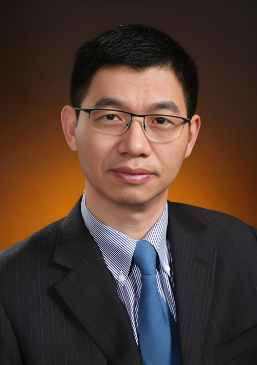Dr. Lu Lugeng (meet up with Top Doctor Gastroenterologist in China)

Dr. Lu Lugeng
Chief of the Department of Gastroenterology, Doctor of Medicine, Chief Physician/Professor (Level 2), Doctoral Supervisor/Postdoctoral Collaborator, Shanghai No.1 Hospital
He holds positions such as Deputy Director of the Chinese Medical Association Liver Disease Branch, Former Director of the Shanghai Liver Disease Society, Vice President of the Shanghai Physicians Association Gastroenterology Branch, Deputy Director of the Chinese Anti-Cancer Association Tumor Hepatology Branch, Member of the Chinese Physicians Association Gastroenterology Branch, Director of the China Liver Inflammation Foundation, and Deputy Dean of the Institute of Gastroenterology, Shanghai Jiao Tong University School of Medicine.
He has received special government allowances from the State Council, the title of “National Distinguished Doctor,” recognition as an Outstanding Academic Leader in Shanghai, and designation as a Leading Talent in Shanghai. He holds 2 invention patents. As a key contributor, he has won one Second Prize of the National Science and Technology Progress Award, one First Prize and three Third Prizes of the Shanghai Science and Technology Progress Award, two Second Prizes of the Shanghai Medical Science and Technology Award, two Third Prizes of the Chinese Medical Science and Technology Award, two Second Prizes from the Ministry of Education, and one Second Prize of the Huaxia Science and Technology Award.
He serves as Deputy Editor of J Clin Transl Hepatol, Chinese Journal of Hepatology, International Journal of Digestive Diseases, Hepatobiliary & Pancreatic Diseases International, and Practical Journal of Hepatology. He is also a member of the editorial board for over 10 journals, including J Dig Dis, Chinese Journal of Gastroenterology, and Gastroenterology and Hepatology.
He has edited 7 monographs and contributed to over 30 monographs. He has published more than 600 papers, including over 130 papers indexed by SCI, and organized the writing of the Consensus on Diagnosis and Treatment of Hepatic Fibrosis and the Management Guidelines for Cholestatic Liver Diseases.
He specializes in the diagnosis and treatment of liver, bile duct, and pancreatic diseases, as well as esophageal and gastrointestinal diseases.
Yewen Renyi: What qualities do you think a qualified gastroenterologist should possess?
Lu Lugeng: A gastroenterologist should have a strong clinical comprehensive capability, as digestive system diseases cover a wide range of conditions. We not only deal with diseases of the digestive system itself but may also encounter diseases involving other systems such as endocrinology, cardiology, nephrology, and respiratory medicine, which require a solid foundation in interdisciplinary knowledge. Furthermore, my main clinical research and expertise are in liver diseases, particularly hepatic fibrosis, fatty liver, and biliary diseases, which require a deep understanding. Most importantly, a doctor should have a strong humanities background, with the ability to empathize and communicate effectively with patients.
Yewen Renyi: What are the future research directions in digestive diseases?
Lu Lugeng: The future research directions in digestive diseases mainly focus on two major areas: non-oncological diseases and oncological diseases. In the non-oncological diseases area, the focus is on fatty liver, hepatic fibrosis, inflammatory bowel disease, severe pancreatitis, and liver failure. These areas currently lack effective treatment options. In the oncological diseases area, gastrointestinal tumors are a major concern, and the research focus is on developing new targeted drugs, immunosuppressants, and chemotherapeutic agents. Such research will provide new options and methods for the treatment of digestive diseases.
Yewen Renyi: What are your teaching philosophies as a graduate supervisor?
Lu Lugeng: As a graduate supervisor, I emphasize rigorous scientific training and adherence to academic standards. At the same time, I provide students with a broader perspective and support, encouraging them to read extensively and actively participate in clinical and research practices. I believe that this approach helps students develop better in their future medical careers.
Yewen Renyi: Are there any memorable patient stories from your medical career?
Lu Lugeng: At the Department of Gastroenterology of Shanghai First People’s Hospital, we see many patients with rare or uncommon diseases every day, so there are countless stories. Recently, one case that left a deep impression was a 40-something-year-old patient from Wenzhou. His facial skin had been unusually dark, and he had abnormal liver function. He had sought treatment in multiple hospitals in Beijing, Shanghai, and Guangzhou without success. When he came to our department, we diagnosed him with hemochromatosis. We quickly provided phlebotomy treatment, and his condition improved significantly. There are many such cases, which is a testament to the trust placed in us by doctors and patients from all over the country.
Yewen Renyi: How did you become the Deputy Editor of the Chinese Journal of Hepatology?
Lu Lugeng: I became the Deputy Editor of the Chinese Journal of Hepatology thanks to the trust and recognition from my peers and the broader academic community in my professional research in the field of liver diseases and my contributions to the journal. I am deeply grateful for everyone’s support and trust.
Yewen Renyi: What are your hobbies outside of work?
Lu Lugeng: My work is very fulfilling, and I devote most of my time to medical care, research, and teaching. Despite this, I still love my work and do not feel tired. I think my work and life have become closely intertwined.

